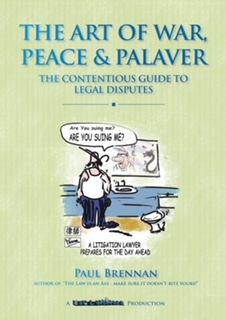

Sun Tzu: To begin with bluster and then take fright at the enemy’s numbers shows a supreme lack of intelligence.
 There are five things to bear in mind when terminating a contract due to the other party’s failure to complete:
There are five things to bear in mind when terminating a contract due to the other party’s failure to complete:
1. Set a firm completion date (“Completion Date”). To make it clear that it must be delivered on a certain day, use the term “time of the essence” in the contract.
2. Depending on the circumstances, if you do not use the term “time of the essence” and the other party does not complete on the appointed day, or there is no appointed day for completion, you may need to serve written notice giving a reasonable period appointing a day by which the other party must sell to or purchase from you (“Notice to Complete”). For instance, in the purchase of a property which is not “time of the essence,” if the seller does not sell on the date appointed, you serve a Notice to Complete, giving, say, three weeks’ notice of the Completion Date.
3. Where you have adhered to the above procedures and the other party is in breach of contract if it fails to complete on the Completion Date (“Breach of Contract”).The innocent party has two choices:
a. Affirm the contract so that it continues and the defaulting party must honour its obligations under the contract. The innocent party can sue the defaulting party for any loss suffered due to the Breach of Contract; or
b. The innocent party can serve notice terminating the contract.
4. The innocent party will often keep options open by writing to the other party, indicating that the innocent party has the right to affirm or terminate; however, it reserves its right to do so.
5. Where neither party tries to complete the contract on the Completion Date, a contract is still “on foot,” and both parties can try again, one giving reasonable notice to the other, appointing a day to complete.
These are also the things to bear in mind if you are potentially the defaulting party, as it is possible to turn the tables if the innocent party gets it wrong.
Extract from "The Art of War, Peace & Palaver: The Contentious Guide to Legal Disputes" by Paul Brennan


© Paul Brennan 2018. All rights reserved.
This article is also available as a Podcast. If you would prefer to listen to this and other legal content please go to the "Law" Podcast :